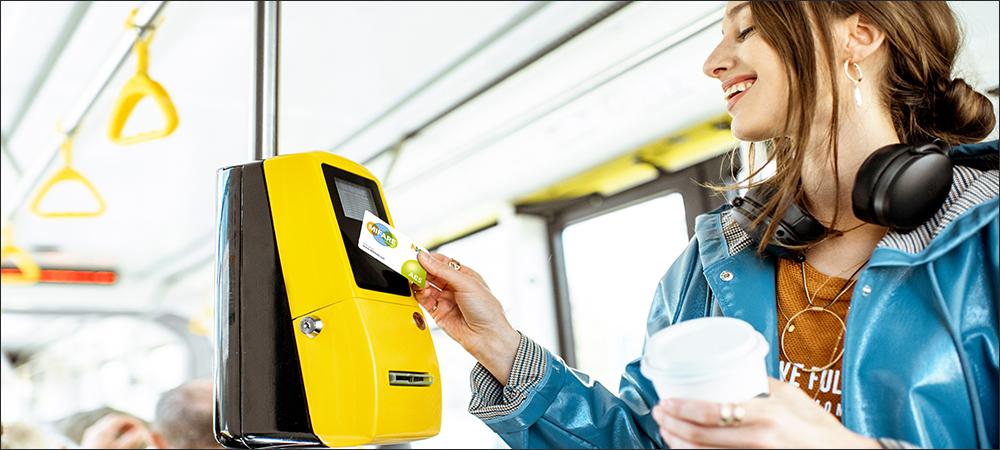Mar 16, 2022There was a time when positive news about radio frequency identification (RFID) was primarily found on websites like RFID Journal. Mainstream news sources rarely gave RFID much coverage, and when they did their stories often skewed negative, portraying the technology as privacy-infringing, too expensive or—at more irrational, conspiracy-based outlets—something controversial and dangerous to be feared. The vibe was not a good one, with reporters casting doubts on RFID's usefulness and ubiquity.
The tide has begun to turn in recent years, as businesses have embraced RFID and other Internet of Things technologies to improve supply chains, inventory management, asset tracking and logistics. This has been particularly true throughout the pandemic, during which retailers and suppliers have turned to RFID to keep stores afloat at a time when the simple act of shopping could prove deadly to consumers and employees. Meanwhile, hospitals and other medical facilities have utilized IoT technologies to monitor vaccines, medications, assets, patients, hygiene compliance and more.
Still, while RFID has gained a lot of traction, the mainstream media has been relatively lukewarm in its reporting. As such, I was pleasantly surprised this morning when a Google Alert let me know about an article from a few weeks ago published by NBC News, which discussed RFID-based solutions in a decidedly positive light. The article, titled "Retailers Take Shoplifting into Their Own Hands with Online Readers," was written by reporter Leticia Miranda, and it explored how retailers are using RFID tags to identify stolen goods in stores and online.
Miranda cited the example of Victoria's Secret, which has been attaching tags not only to its in-store products, but also to those sold online, enabling the company to track merchandise throughout its supply chain, as well as combat organized retail theft. "Months after a string of high-profile retail thefts," the writer explained, "retailers are looking to turn the itchy tags attached to the back of a blouse or new pair of jeans fresh off the rack into a more sophisticated piece of covert tracking technology used to set off store alarms or help identify stolen products being sold online."
According to the article, 15 percent of all retailers have adopted RFID to monitor for shoplifters. That number is significant—the fact that a prominent site like NBC is the one reporting it, even more so. I was gratified to read the following:"What you're seeing now across retail and the staffing challenges for law enforcement is a greater need for retailers to package the cases to do all the investigation," said Joe Coll, vice president of asset protection, operations and strategy at Macy's, during a webinar last week hosted by the trade publication RFID Journal. "RFID gives you that ability."Clearly, NBC News is listening to what RFID Journal and other experts have to say, which is a reassuring sign that attitudes are changing.
I was initially deflated when the article referenced the privacy hysteria of the past, noting "Although the tags can be removed by customers once they leave the store and don't by themselves allow stores to identify shoppers, privacy advocates are concerned that customers could be tracked in stores without consent." However, I was then heartened to discover the writer had done her research and had countered that claim by citing retail security experts like Dean Frew, SML's chief technology officer and senior VP of RFID solutions, who set the record straight for NBC's audience.

Miranda paraphrased Frew with the following explanation: "It does not allow retailers to broadly track a customers' whereabouts if they are wearing the clothes and cannot even help track items if they're stolen or lost. Instead, RFID chips require specific reader guns to access the information contained in the tag and these reader guns only work from 10 to 30 feet away… This would make it nearly impossible for the tags to be read by someone without an RFID gun from far away."
NBC's article offered a fair, balanced and well-researched look into how RFID can help the retail sector thwart theft. For example, Miranda recounted the success story of Macy's RFID deployment, which RFID Journal has frequently covered (see Macy's Launches Pick to the Last Unit Program for Omnichannel Sales, Macy's to RFID-Tag 100 Percent of Items and RFID a Very Big Part of Macy's Future). She also discussed how Burberry rolled out RFID at its London flagship store (see From Designing to Marketing: Major Tech Trends Shaping the Future of Luxury Apparel and Retail).
What's more, the writer recalled Rebecca Minkoff's RFID efforts, on which RFID Journal has also reported (see Rebecca Minkoff Adds RFID to More Stores, Rebecca Minkoff Extends Its RFID System Beyond the Store, Rebecca Minkoff Store Uses RFID to Provide an Immersive Experience and Rebecca Minkoff Brings Self-Service to SoHo Store With RFID). The article illustrated that numerous big-name retailers have benefitted from their deployments, which is a sea change for mainstream news sites and could encourage others to do the same.
Could it be that the media has reached a point at which it finally gets RFID? If NBC's article and another recent story from The Wall Street Journal (see The Wall Street Journal Extols RFID's Benefits) are any indicator, it would seem that it has.
Rich Handley has been the managing editor of RFID Journal since 2005. Outside the RFID world, Rich has authored, edited or contributed to numerous books about pop culture.You can contact Richvia email.
Exhibitors atRFID Journal LIVE! 2022 will offer solutions for retail, security and anti-theft measures. To learn more, visitthe event's website.








